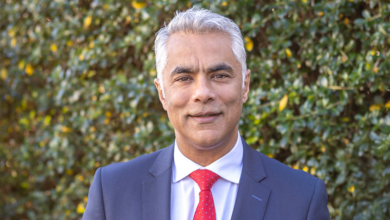Labour in the North
 Irish Labour has an active branch in Northern Ireland but it has a relatively low profile. agendaNi looks at its work as the Irish general election approaches.
Irish Labour has an active branch in Northern Ireland but it has a relatively low profile. agendaNi looks at its work as the Irish general election approaches.
While Irish Labour members in Northern Ireland do not have an electoral role, there is still “plenty of work” for them to carry out, according to one of its members.
There are around 200 members of the Irish Labour constituency council in Northern Ireland – half of whom are based in Belfast – and the other half are scattered throughout the province. There are three main branches of the council: Belfast, Omagh and Derry.
The members co-ordinate the work of the party in the North, publishing and delivering leaflets explaining party policy and raising awareness. They also hold debates and invite guests to address its meetings, which are open to all members.
A spokesman for the council told agendaNi that there are a variety of reasons that people join: “There are people who were born in the South and who have moved to Northern Ireland or people born in Northern Ireland but maybe studied in the South, or maybe they live near a border or have business concerns in the South.”
While the council is affiliated with the Labour Party, the spokesman says Northern Ireland politics “doesn’t really feature” in the party’s overall agenda. “It’s not really in their mindset but it will come up every so often”.
Nonetheless, members of the council use their knowledge to help keep the party informed as to what is happening in Northern Ireland: “We would pass on information about how the Assembly is operating, what policy positions other parties are taking or promoting, or anything that is useful to them.
“We also do a lot of practical work. For example, we are going to help in organising canvassing for the general election in the Republic. We wouldn’t have a central role but we help where we can. We’ll be knocking a few doors, help give out leaflets and [we] generally promote good relations.”
Other party members, including leader Eamon Gilmore, also visited Belfast last year to meet members. Politics isn’t just about becoming elected, says the spokesman: “It’s also about challenging people’s minds on things and that’s the less glamorous aspect. In Northern Ireland there’s still plenty of work to be done [on] promoting co-operatives or trade unions and a more community approach to things.” The council has been involved in the North’s water tax campaign and trade union events.
The history of labour in Northern Ireland is detailed and complex. In 1907, the British Labour Party held its first ever conference in Belfast but in 1913 it made a controversial decision to give exclusive organising rights in Ireland to the recently formed Irish Labour Party. It was a move that didn’t sit well with the trade council in Belfast as many of its members were unionist.
Soon after partition, the Northern Ireland Labour Party (NILP) was founded as a socialist party, claiming to be an alternative to both nationalism and unionism. The NILP maintained strong links with the British Labour Party. Separately, the long-running campaign to allow local people to join British Labour was successful in 2003. (agendaNi June 2009, page 102).
Labour groupings in Northern Ireland have gone through many changes throughout the years but around six years ago, the SDLP, and the Irish Labour and British Labour parties came together and formed the Northern Ireland Labour Forum.
An arrangement between the three parties now allows joint membership. In theory, this means that members can be part of the forum as well as being affiliated with any of the three parties.





